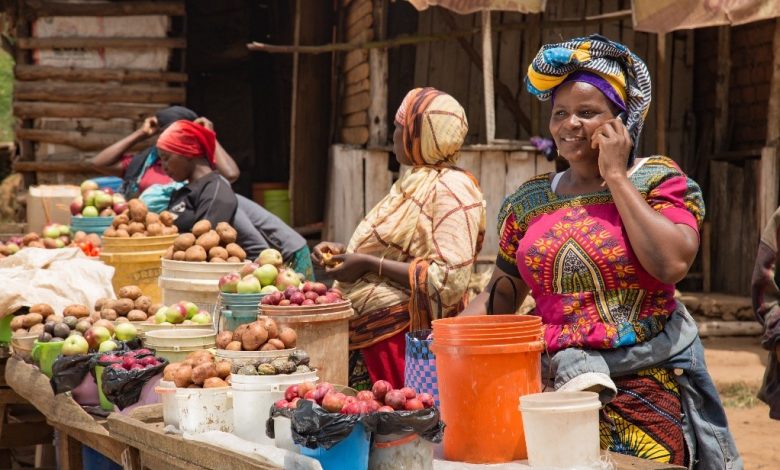How phones transform women’s businesses

KIGOMA: WHEN Chichi Kamandwa first learned to use her phone for business, she never imagined it would double her sales. Like many women in Kigoma, her livelihood once depended solely on traditional farming and milling. But now, thanks to digital skills, her business is thriving.
In Kigoma, Tanzania, over 80 per cent of livelihoods rely on small-scale farming, fishing, and informal trade. Women form the backbone of this economy, especially in agriculture.
Yet, limited digital literacy has long stood in the way of their full economic potential. Without the skills to use mobile platforms, digital financial tools, or online marketplaces, many women are unable to expand or formalize their businesses.
Ms Kamandwa, a 39-year-old mother of three, runs a small agroprocessing business milling and packaging maize, cassava, and nutrientrich flours. For years, her phone was just a tool for calls and photos until 2024, when she participated in a Digital Literacy and Branding workshop organized by UN Women.
ALSO READ: How women’s voices drive change through storytelling
The workshop aimed to equip women entrepreneurs with practical skills to market their products, manage finances, and grow their businesses online. It was part of the UN Kigoma Joint Programme (KJP II), a collaboration of 17 UN agencies working with local authorities to promote development and human security.
The training also involved young women from UN Women’s “Binti Dijitali” African Girls Can Code Initiative (AGCCI), who offered hands-on guidance and peer-led support. “Before the training, I didn’t know my phone could be a business tool,” Kamandwa recalls.
“Now I use it to showcase my products online, find customers, and keep records.” She quickly applied her new skills. “I learned how to design proper labels, list ingredients and registration numbers, and upgrade my packaging to attract more buyers,” she says. The results were almost immediate.
“I realized that how a product looks really matters. After improving my logo and switching to better packaging, my sales grew significantly because customers trusted my brand more.” She now uses WhatsApp to advertise, communicate with customers, and take orders tools that have expanded her reach far beyond her local community.
Yet, even with these strides, Ms Kamandwa faces the reality many women in Kigoma know too well, the double burden of running a business while shouldering full responsibility at home.
“Once a woman starts earning, she’s often left to handle everything alone,” she says. “Some men leave for work in other towns, come back briefly, then disappear again.
The woman is left to care for the children, manage the household, and run the business.” A lack of financial services and reliable support leaves women vulnerable. “When you lack information or tools, it’s easy for people to take advantage of you,” she adds.
Recognizing these challenges, UN Women, through KJP II, is working with local governments, mobile service providers, and private sector actors to create an inclusive environment where women-led businesses can thrive.
“These workshops help women adopt innovative practices, build resilience, and move into formal markets,” says Lilian Mwamdanga, UN Women’s Specialist for Women’s Economic Empowerment.
For Ms Kamandwa, the most valuable part of the training isn’t just the digital skills. It’s the network of women supporting each other. “We’ve formed small groups to uplift one another,” she says.
“I’ve even started teaching other women how to use their phones for business. It may seem like a small thing, but it can transform the way we work and sell.” With increased visibility and growing sales, Ms Kamandwa has expanded her inventory and now sells in bulk.
She hopes to mentor more women and train young girls in business skills. “If I can do this, other women can too,” she says. “We just need the right support and a chance to grow.”





